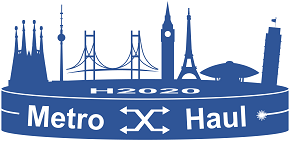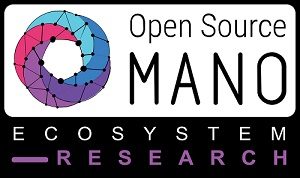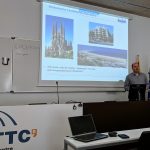Ambitious Multi-National 5G Optical Network Project Awarded €7.7m in EU Funding
A consortium of European companies and research institutions has been awarded €7.7 million by the European Commission to fund ambitious research into the application of scalable optical networks to future 5G wireless technology and services.
The objective of the Metro-Haul project is to architect and design cost-effective, energy-efficient, agile, and programmable metro networks that are scalable for 5G access supporting next generation Internet services, while capable of fulfilling future requirements. This work will encompass the design of all-optical metro nodes that will include full compute and storage capabilities that will interface with both 5G access and multi-Tbit/s core networks capable of elastic dimensioning.
The consortium is made up of twenty members and includes major network operators, equipment manufacturers, specialist small businesses, and universities from seven different European countries.
Andrew Lord from British Telecom who is leading the project said, “This work is very important for forward-looking service providers, and we are pleased to be working with Telecom Italia and Telefonica on this project. We hope to deliver on a number of targets that will increase the capacity of metro networks, provide dynamic end-to-end connectivity using network slicing and software defined networking (SDN), and achieve significant reductions in operational and capital costs for future 5G services.”
Old Dog Consulting, a British networking consultancy, is responsible for coordinating dissemination, standardisation, and exploitation activity within Metro-Haul. Daniel King, a senior consultant with Old Dog Consulting, said, “5G connectivity is the future for the Internet. Recent estimates suggest that by the year 2025 over 1.4 billion users will be using 5G mobile connections to access high bandwidth services such as 4K video streaming, enhanced reality, and massive multi-player mobile gaming. This will put a lot of pressure on the network infrastructure. Metro-Haul will answer the questions about how to squeeze substantially more capacity from network resources while being flexible to varying demands.”
Zeetta Networks, a spin-out company from the University of Bristol focusing on the development and marketing of Software Defined Networking (SDN) and Network Function Virtualisation (NFV) solutions, is also part of the consortium. “We are very proud to have played a key role in this successful EU funding bid and to be collaborating with such a group of leading researchers and in the 5G space,” said Vassilis Seferidis, CEO of Zeetta Networks. “5G is expected to form the basis for the expanding Internet of Things as well as smart cities, autonomous cars, and various other high speed, low-latency applications of the near future. This three-year project scored very highly with the judging panel recognising its importance and the huge implications it brings to the telecoms industry and the verticals they support.”
The full list of partners in the Metro-Haul consortium is as follows:
- British Telecommunications (UK)
- Telecom Italia (Italy)
- Centre Tecnologic de Telecomunicacions de Catalunya (Spain)
- Telefonica Investigacion y Desarrollo (Spain)
- Uniersity of Bristol (UK)
- Universitat Politecnica de Catalunya (Spain)
- Consorzio Nazionale Interuniversitario Per Le Telecomunicazioni (Italy)
- Naudit High Performance Computing and Networking (Spain)
- Openlightcomm (UK)
- Lexden Technologies (UK)
- Zeetta Networks (UK)
- Fraunhofer Gesellschaft zur Foerderung der Angewandten Forschung (Germany)
- Technische Universiteit Eindhoven (Netherlands)
- Coriant Portugal Unipessoal (Portugal)
- Ericsson Telecomunicazioni (Italy)
- Coritel – Consorzio di Ricerca Sulle Telecomunicazioni (Italy)
- Adva Optical Networking (Germany)
- Alcatel-Lucent Bell Labs France (France)
- Old Dog Consulting (UK)
- SeeTech (Germany)



